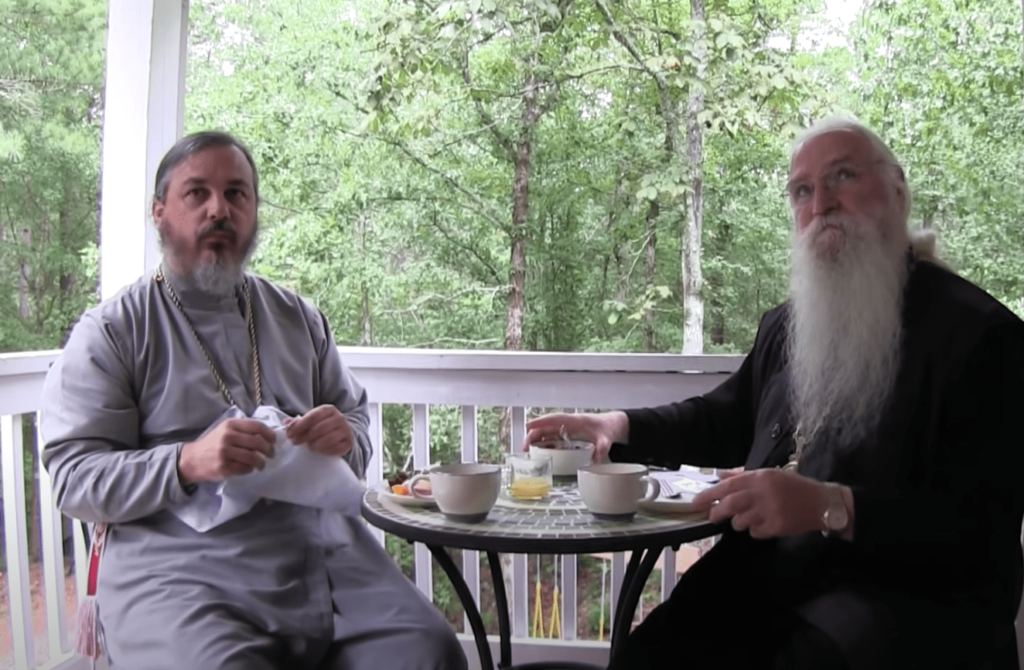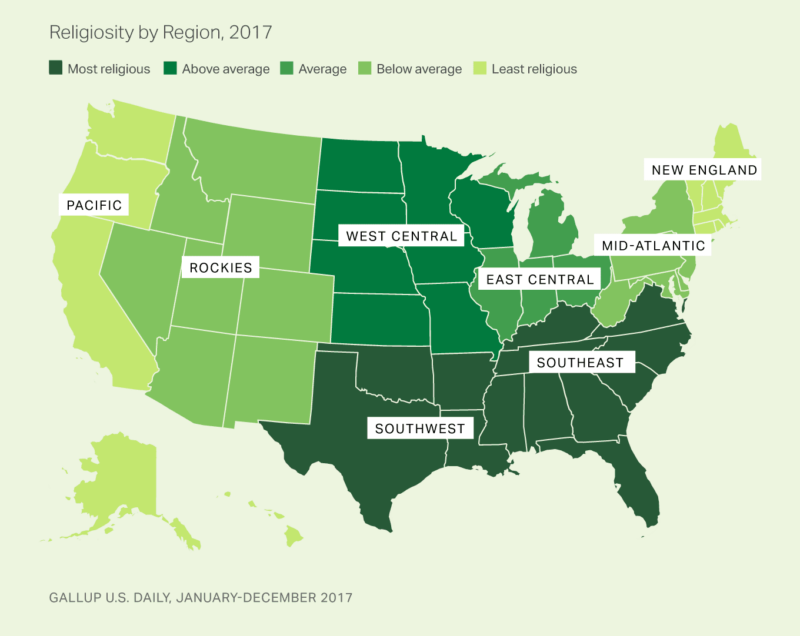The Phony Threat Of Orthodixie

A friend at coffee hour after church today asked me if I had seen a recent piece published by the libs at the Orthodox Studies Center at Fordham: “Orthodox America Has A Lost Cause Problem”.
I had not. The website that center runs, Public Orthodoxy, is the parish newsletter of that faction of American Orthodoxy that wants to turn us all into Byzantine Episcopalians. I did take a look at the essay after church, and it made me smile. Looks like those ol’ boys are scared to death of all the converts in the South. Author Arim Sarkisian makes a hilariously circumstantial case that the growth of Orthodoxy in the South is advancing the cause of, no kidding, “white supremacy.” He cites three fairly well-known Orthodox bloggers in the South who have espoused Confederate sympathies. While no one can deny that there are people within Orthodoxy who do hold strongly right-wing opinions on politics and history, the idea that these views are normative within Orthodoxy in the South is simply bizarre. In my own fast-growing parish, I know for a fact that there are people who vote Democrat (including a black member), others who vote Republican, and others who consider themselves independent. The one thing we don’t have in our parish is people bringing politics into church. Our pastor keeps a lid on that, God bless him. Besides, my sense is that people are just so happy to have a place where we can be together worshipping God without politics intruding.
I have no idea how common that is in Orthodox parishes in the South, but I bet it’s far more common than the portrait the Chicago-based Sarkisian paints of Southern Orthodox parishes crawling with neo-Confederates.
Sarkisian is on a tear:
It’s possible to trace these developments in other, more established corners of Orthodox America. In November, St. Vladimir’s Orthodox Theological Seminary announced its intentions to relocate from suburban New York City after more than eight decades in the metropolitan area. This unexpected announcement has garnered calls for the seminary to re-establish itself in the South. American Conservative blogger and Orthodox Christian Rod Dreher maintains that the only future for the institution is in Texas. As Dreher argues, “The future of American Orthodoxy lies primarily in the region of this country most open to the Gospel.”
Observers like Dreher see such moves as essential to the survival of Orthodoxy itself, suggesting that “blue states” are bound to legislate and regulate the Orthodox Church out of existence and drive its adherents into the catacombs. Echoing a common conservative trope, Dreher portends the systemic persecution of “traditional” American Christians by what he calls the “soft totalitarianism” of a “woke left.” He outlined some of these ideas in January when he delivered the seminary’s annual Fr. Alexander Schmemann Memorial Lecture, a controversial talk which began with Dreher’s defiant acknowledgment of “my Orthodox Christian brothers and sisters who tried to get me deplatformed.” Many of these arguments are also deftly implied in the seminary’s press release, which notes that a primary rationale for relocation is “the legal and regulatory environment in the New York area.”
For proponents of an “Orthodox Dixie,” the reality is clear: Orthodoxy is best, or perhaps only suited to “red states” thought more aligned with conservative views on Culture Wars issues like abortion and LGBTQIA rights. These proponents point to late-twentieth transformations in the national economy which shifted industries, jobs, and people from the Northern “Rust Belt” into the South and Southwest. In voicing this claim, adherents like Dreher demand that the historical strongholds of Orthodox Christianity in the continental United States—dwindling parishes in the Northeast and Upper Midwest, many established by working-class immigrants in the shadows of factories, foundries, and mines more than a century ago—must now give way to emerging communities elsewhere. Found in this one-dimensional, monolithic South is what they boast as a more orthodox Orthodoxy, a traditionalist expression driven by the conversions of conservative Christians from the Bible Belt.
Golly. The smear artist Sarkisian is attempting to liken more mainstream political and theological conservatives with neo-Confederacy. It’s not true, but it serves his, and his editors’, childish progressive alarmism.
Where to even start with this? It cannot be denied that Orthodox Christianity, like Christianity overall, is dying in the Northeast. Why it is happening is a complex issue, but nobody can deny that it is happening. Take a look at these results from Gallup from four years ago:

The historic regions where Orthodoxy was first planted in the United States are turning away from God. Nobody can deny that. You might want to make an argument that a seminary should be in a place where the need for proclaiming the Gospel is greatest, but that fails to address the concern that St. Vladimir’s board has over “the legal and regulatory environment in the New York area.”
It is a very, very serious concern for any faithfully Orthodox Christian institution, particularly when it comes to LGBT-focused legislation and cultural norms. For now, the First Amendment protects the rights of seminaries to teach according to religious orthodoxy, even if it contradicts the law governing homosexuality and transgenderism (of which New York is one of the most progressive states). But that says nothing about rules for academic accreditation. It is entirely possible that if SVOTS remains in New York, or another deep blue state, that it could face uphill accreditation battles that could put the very existence of the seminary in jeopardy. Relocating to a red state would mean going to a place that is both more culturally conservative, and, being more religious, better understands the importance of religious liberty.
Naturally this upsets the people at Public Orthodoxy, who are eager to liberalize — including to queer — the Orthodox churches in our country. It appears that these theological progressives fear that they are losing influence over the direction of Orthodoxy in America, and are resorting to neo-Confederate smears to justify their anxiety. The Fordham Orthodox guys helped lead the charge to get my Schmemann lecture at SVOTS cancelled, but they failed. I talked about Live Not By Lies, and the crisis all small-o orthodox Christians — and especially Orthodox Christians — are facing in this post-Christian culture. I know exactly why they hated having me speak there: because I have their number. You rarely if ever hear progressive Orthodox voices complain about the rising soft totalitarianism against moral and theological conservatives because they themselves think oppression of the orthodox Orthodox by the state and by other institutions is a good thing. What these people can’t do within the institution — move it leftward — they are hoping that the state will do for them.
That’s my guess. I am happy to be corrected if I am wrong.
I don’t “demand” that the older Orthodox communities of the Northeast, Mid-Atlantic, and the Rust Belt “give way to emerging communities” in the South. I am only pointing out a demographic reality. It is not the fault of Southern Orthodox believers that the parishes down here are expanding while the old-line parishes decline, any more than it’s the fault of Nigerian Anglicans that their ranks are booming while the Church of England and its North American sister churches are drying up. Do not make us the scapegoats for your local failure.
Sarkisian goes on to tie the shifting demography of American Orthodoxy to threats to democracy itself. He writes:
Data shows us that Orthodox America is both shrinking in size and shifting in its geographical reach. The lived experiences of that process lay bare that Orthodox America has a Lost Cause problem, one which distorts both United States history and the tenets of the Orthodox Church in order to marginalize, exclude, and even to endanger members of its own flock.
Ah-ha! Even to endanger! There is the voice of a left-wing academic hysteric, who deploys the language of safety to troll and intimidate his opponents. According to Dr. Sarkisian, if we have parishes that want to practice actual orthodox Orthodoxy, we will have blood on our hands, or something. The “danger” and “safety” reflex is always the last refuge of progressive scoundrels who mistake their anxiety and anger for an actual physical threat.
Again: do not scapegoat Southern Orthodox for the failures of Orthodox parishes in the historical Orthodox settlements to spread the faith or pass it on to their children. Nobody in the South does (or should) look down on our brothers and sisters in the more spiritually dessicated parts of the country. There are good and faithful believers — believers who are orthodox in their Orthodoxy — there who are doing their best despite facing cultural pressures that have not (yet) hit the South in full force. My guess is that many of those people would not be sorry to see SVOTS move to a safer locale in a region where the cultural and legal climate is less persecutorial.
Like any church or religious confession, we Orthodox in America have a diversity of political beliefs among us. I don’t read widely, and scarcely at all, on the Orthodox precincts of the Internet, so I have no idea to what extent Sarkisian’s criticism of those three Christians he cites by name is valid, or not. But I can say that the idea that Orthodixie has a “Lost Cause” problem is Yankee pants-wetting at its most amusing. We do have problems, like everybody else, but the Lost Cause is not one of them. If folks like Dr. Sarkisian are so worried about what the South is going to do to Orthodoxy, maybe they should first examine their collection “Lost Faith” problem.
If you’re interested to know more about Orthodoxy in the contemporary South, watch this cheerful documentary about the Russian Orthodox church in South Carolina.
UPDATE: A reader comments:
Hi Rod, fellow Orthodox and SVOTS alum here.
You write: “You might want to make an argument that a seminary should be in a place where the need for proclaiming the Gospel is greatest, but that fails to address the concern that St. Vladimir’s board has over ‘the legal and regulatory environment in the New York area.’”
You then imply in the next paragraph that “legal and regulatory environment” is a reference to legal dangers arising from social or LGBT causes.
You should have quoted with ellipses. The quote from the SVOTS board, available here (https://www.svots.edu/headl… reads in full:
“The legal and regulatory environment in the New York area makes significant alterations to campus infrastructure or growth extremely difficult, even if expansion of the current campus were possible.”
The reference to “legal and regulatory environment” in the board statement is clearly to the metro NYC area’s land and building permitting and construction difficulties that have, for several decades now, made physical expansion of the SVOTS campus–which, as you know, is tucked into an odd corner lot in Yonkers hemmed in by a lake–difficult.
Your readers should also know that the campus builders are extremely antiquated and yes, dilapidated, and in need of major and highly expensive overhauls. The land is probably more valuable with the buildings as tear-downs.
Can you please clarify that for your readers?
Happily. I apologize for the error. I have been having an ongoing conversation with Orthodox friends (and others) about the changing legal and cultural landscape regarding accreditation of institutions that do not conform to LGBT orthodoxy, and assumed that that’s what SVOTS was concerned about. I appreciate the correction — but SVOTS had better start worrying about that too!
Subscribe for as little as $5/mo to start commenting on Rod’s blog.